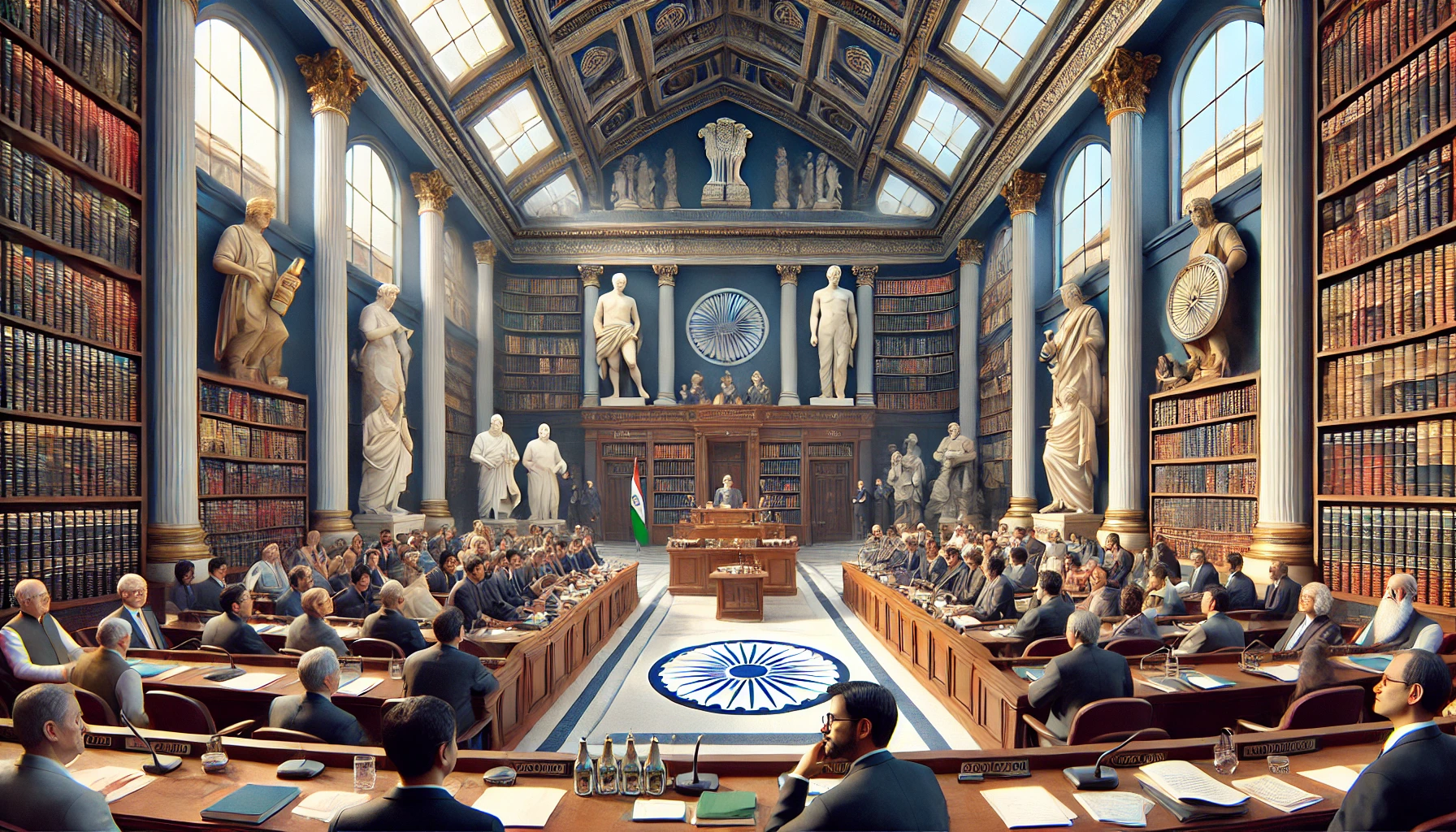Politics is a dynamic and multifaceted concept that shapes the governance, culture, and social interactions within societies. To fully grasp the essence of politics, one must explore its various definitions, the roles it plays, and how it is interpreted by different thinkers and traditions. This comprehensive blog delves into the definition of politics, explores the perspectives of renowned philosophers, and examines its significance in contemporary society.
Introduction to Politics
Politics is a pervasive aspect of human existence, influencing the way societies are organized, governed, and managed. It is a field that encompasses a wide range of activities and processes, from the formulation of policies and laws to the distribution of resources and power. To understand politics, one must consider its different definitions and interpretations, as well as the historical and cultural contexts in which it operates.
Traditional Definitions of Politics
Politics as the Art of Government
This traditional view sees politics as the activities associated with the governance of a country or area, particularly the debate among individuals or parties having power. It focuses on the formal institutions and processes of government, such as parliaments, executives, and judiciaries.
Politics as Public Affairs
This perspective extends beyond the formal institutions of government to include the broader activities and practices that influence public life and societal norms. It recognizes that politics is not confined to the actions of politicians and government officials but is embedded in everyday social interactions.
Politics as Compromise and Consensus
This view highlights the role of negotiation and agreement in the political process. It emphasizes that politics is about finding common ground and making collective decisions, often through the reconciliation of diverse interests.
Politics as Power
This interpretation focuses on the distribution and exercise of power within a society. It examines how power dynamics shape relationships, influence decisions, and determine outcomes.
Philosophical Perspectives on Politics
Aristotle’s Concept of Politics
Aristotle, often regarded as the father of political science, viewed politics as the “master science” because it influences all other branches of human activity. He believed that politics was not just about governance but also about achieving the good life. According to Aristotle, the ultimate purpose of politics is to cultivate virtue and ensure the well-being of citizens.
Plato’s Ideal State
Plato, a student of Socrates, envisioned an ideal state ruled by philosopher-kings in his work “The Republic.” Plato believed that only those with the highest knowledge and virtue should govern, as they would be best equipped to achieve justice and the common good.
Niccolò Machiavelli’s Realism
Niccolò Machiavelli, a Renaissance political theorist, is best known for his work “The Prince,” which offers a pragmatic and sometimes cynical view of politics. Machiavelli argued that political leaders must be shrewd and sometimes ruthless to maintain power and ensure the stability of their states.
John Locke’s Liberalism
John Locke, an Enlightenment thinker, contributed significantly to the understanding of politics as public affairs. In his “Two Treatises of Government,” Locke argued that political power is derived from the consent of the governed and that the primary role of government is to protect individual rights and freedoms.
Jean-Jacques Rousseau’s Social Contract
Jean-Jacques Rousseau developed the concept of the social contract in his work “The Social Contract.” Rousseau argued that political legitimacy arises from the collective will of the people and that government should reflect the general will to ensure freedom and equality.
Karl Marx’s Critique of Capitalism
Karl Marx offered a radical critique of capitalism and its impact on politics. In his works, including “The Communist Manifesto” and “Das Kapital,” Marx argued that politics is a reflection of economic class struggles and that true political change requires a revolutionary transformation of the economic system.
Max Weber’s Authority Types
Max Weber distinguished between different types of political leadership and authority in his work “Politics as a Vocation.” Weber identified three types of legitimate authority: traditional, charismatic, and legal-rational. He emphasized that politics involves the exercise of power through these various forms of authority.
Hannah Arendt’s Public Sphere
Hannah Arendt explored the nature of political action and public life in her work “The Human Condition.” Arendt emphasized the importance of active participation in public affairs and the role of deliberation and debate in shaping collective decisions.
Michel Foucault’s Power Dynamics
Michel Foucault explored the relationship between power and knowledge. Foucault argued that power is pervasive and operates through various institutions and practices. He believed that power is not just a top-down phenomenon but is embedded in everyday interactions and social norms.
Antonio Gramsci’s Cultural Hegemony
Antonio Gramsci introduced the concept of cultural hegemony to explain how dominant groups maintain power by shaping cultural and ideological norms. Gramsci argued that political power is not just exercised through coercion but also through the consent of the governed.
Modern Interpretations of Politics
Politics as Governance and Policy-Making
In modern contexts, politics is often associated with governance and policy-making. This includes the processes by which governments formulate, implement, and enforce laws and policies. It also involves the management of public resources and the delivery of public services.
Politics as Representation and Participation
Contemporary political theory emphasizes the importance of representation and participation. This includes the mechanisms by which citizens elect their representatives, as well as the various ways in which individuals and groups can participate in the political process, such as through voting, activism, and public discourse.
Politics as Conflict and Cooperation
Politics is also viewed as a domain of conflict and cooperation. This perspective recognizes that political processes often involve competing interests and the negotiation of differences. It highlights the role of political institutions and processes in managing and resolving conflicts.
Politics as Ideology and Identity
Modern interpretations of politics also consider the role of ideology and identity. This includes the ways in which political beliefs and values shape individual and collective identities, as well as the influence of political ideologies on policy and governance.
The Importance of Defining Politics
Informed Citizenship
A clear understanding of politics is essential for informed citizenship. It enables individuals to make knowledgeable decisions, participate effectively in the political process, and hold their leaders accountable.
Effective Governance
Defining politics helps in the design and implementation of effective governance structures and processes. It provides a framework for understanding the roles and responsibilities of political actors and institutions.
Social Cohesion
A well-defined concept of politics can contribute to social cohesion by promoting a shared understanding of the rules and norms that govern collective life. It helps to build trust and cooperation among citizens.
Conflict Resolution
Understanding politics is crucial for resolving conflicts and addressing competing interests within a society. It provides tools and mechanisms for negotiation, compromise, and consensus-building.
Advocacy and Activism
A comprehensive understanding of politics empowers individuals and groups to advocate for their rights and interests, influence public policy, and bring about social change.
Conclusion
Defining politics is a complex and multifaceted task that involves exploring various perspectives, theories, and interpretations. From the traditional view of politics as the art of government to modern interpretations that emphasize governance, representation, conflict, and ideology, politics plays a fundamental role in shaping societies and influencing individual lives. By engaging with the insights of philosophers such as Aristotle, Plato, Machiavelli, Locke, Rousseau, Marx, Weber, Arendt, Foucault, and Gramsci, individuals can develop a deeper appreciation of the diverse dimensions of politics and its significance in promoting justice, equality, and the common good.

